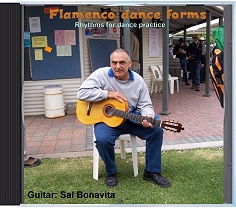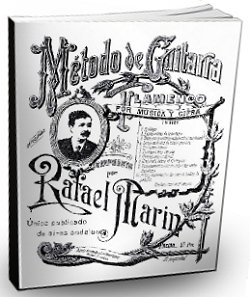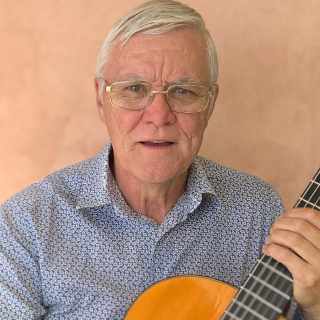
What flamenco is NOTIt's a matter of instinctRasgueados and arpeggios become second nature if you play them enough. Speaking from personal experience, throwing in a triplet rasgueado or arpeggio passage in an improvised (or composed) number is more an unconscious action than anything else and I would not want to suppress it anyway. How can you suppress instinct? Examples of what I mean can be seen in the rasgueado sequences on my song videos. Many of these happen spontaneously and are "composed" and executed at a sub-conscious level a split second before they are played. There is no thinking involved. If my life depended on playing a song "exactly" the same, note for note and stroke for stroke, then sadly I would die. I simply cannot give that guarantee. There will be differences in the flourishes and fills and I might even decide at the time to modify the main rhythm patterns. Learn to pedal, then forget it. It's not a matter of "showing off" or flaunting the goods. I'm really not that sort of performer. If I was I would probably be driving around in a brand new Porsche instead of a 20 year old a rust bucket. Anyway, part of this "naturalness" comes from the years of experience playing improvised rhythm for dancers. But the major part of it comes from the original instruction I received from genuine flamenco teachers, and of course many hours of disciplined practice. The same applies to flamenco dancing, jazz piano, tight rope walking or any other refined skill you care to name. As one dancer aptly put it, it's like riding a bike. Once you learn it and practice it in a disciplined way, you no longer need to think about it. It just happens. The truth is, I find singing songs very difficult, so most of my mental focus is used up trying to remember chord sequences and lyrics, not to mention trying to sing in tune (something I am not very good at). The last thing on my mind is how and when I play rasgueados. It's there, it feels natural and I WILL exploit the skills I have. Why would I want to play just single notes or bland rhythmic patterns if these skills exist and are begging to be used? Would I not be dis-respecting my teachers if I kept the skills in the closet and never let them out for some air? I have no problem saying that the busking videos are definitely not flamenco and do not pretend to be. It's just me messing around on the guitar. It feels good to experiment a bit. But my conscience forbids me from lying to you. I would pluck out my own eyeballs with ornamental chopsticks before I stoop to such dishonesty. The real flamenco pieces are in the flamenco section where they should be. I seem to have strayed a bit from the point I was trying to make.
Variety in playing techniques can naturally and dynamically enhance your music so, like I said, why not use them? I applaud the recording artists who have made a career out of producing some wonderful guitar music. But "fair crack of the whip", as we say in Australia. If it's not flamenco, and you know it, please have some respect for the artform and don't use the word so loosely as if it were some sort of magic wand to sell records that are of an entirely different genre. At least give the record buying public a decent demonstration of the skills associated with traditional flamenco, not just rumba rhythms. Why don't the majority of so-called "New Flamenco" artists use ragueados etc? Well? Isn't that a fair question? The only reason I can think of is that real flamenco skills are simply not there to be exploited. If this be the case, then why include the word "flamenco" on the CD cover??? Most of the time the music on the CD is not even what I would call "flamenco style". Latin guitar would be closer to the truth. Whew! I need another strong coffee.
| ||
|

Download my CD
Flamenco Dance Forms

Flamenco guitar method 1902


